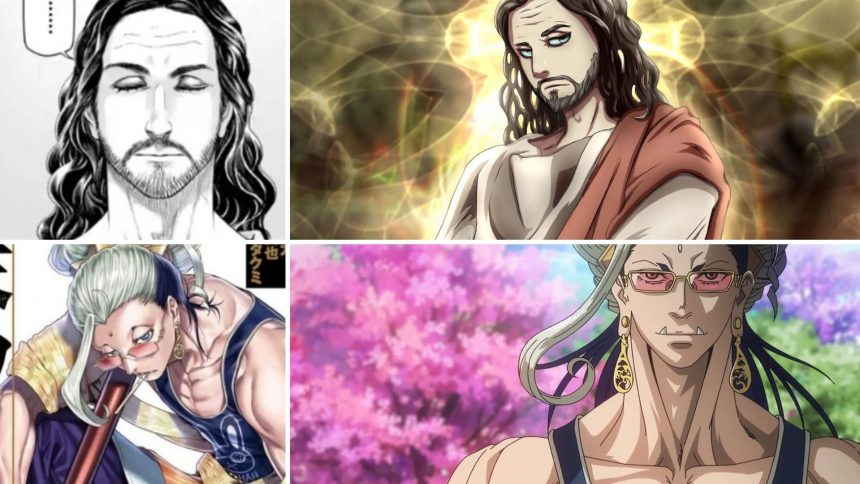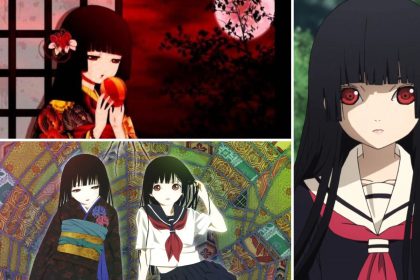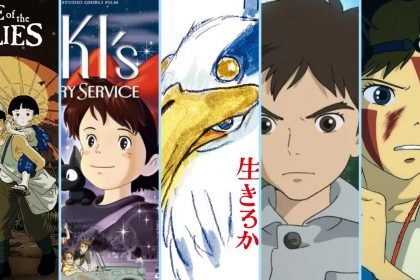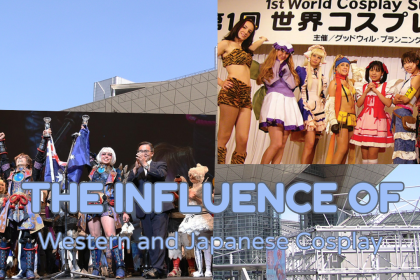Record of Ragnarok is a popular manga and anime series that has captivated audiences worldwide with its epic battles between gods and humans. Created by Shinya Umemura, Takumi Fukui, and Ajichika, the series offers a unique perspective on the portrayal of religion and spiritual figures. In this article, we will explore how Record of Ragnarok presents these themes and the implications it holds for both the narrative and its audience.
The Clash of Mythologies
Record of Ragnarok brings together gods from various mythologies and pits them against human champions in a grand tournament. This clash of mythologies allows the series to delve into the diverse beliefs and traditions of different cultures. It raises intriguing questions about the nature of gods and their interactions with humans. How do these deities manifest in the mortal world? What motivates them to fight? These questions spark curiosity and invite readers to explore the rich tapestry of religious and mythological lore.
For example, in the battle between the Greek god Zeus and the human champion Adam, the series showcases the clash between two powerful entities from different belief systems. This confrontation not only highlights the contrasting attributes and powers of these characters but also delves into the cultural significance and symbolism associated with them. By intertwining different mythologies, Record of Ragnarok offers a platform for readers to appreciate the diversity and depth of religious and spiritual traditions.
The Human Perspective
While gods play a central role in Record of Ragnarok, the series also emphasizes the human champions who stand against them. This human-centric perspective allows for a deeper exploration of faith, determination, and the indomitable spirit of humanity. It raises questions about the role of mortals in the face of divine entities and the power of belief in the face of overwhelming odds.
Throughout the series, we witness the struggles, motivations, and sacrifices of the human champions as they confront gods in battle. These mortal warriors become symbols of resilience and the potential for growth. They embody the idea that even in the face of seemingly insurmountable challenges, humans can rise above their limitations and challenge the divine. This portrayal resonates with readers, reminding them of the strength within themselves to overcome adversity.
The Ambiguity of Morality in Record of Ragnarok
One of the intriguing aspects of Record of Ragnarok is its exploration of the morality of both gods and humans. The series challenges the notion of absolute good and evil, blurring the lines between right and wrong. It presents the gods as complex beings with their own motivations, flaws, and moral dilemmas.
For instance, the Norse god Loki is depicted as a cunning and manipulative figure who orchestrates events behind the scenes. While his actions may be seen as deceitful and malicious, they are guided by his desire to challenge the gods and provoke change. This nuanced portrayal of gods as morally ambiguous characters adds depth to the narrative and encourages readers to question their preconceived notions of divinity.
Similarly, the human champions in Record of Ragnarok are not portrayed as purely virtuous or heroic. They are flawed individuals with their own histories, traumas, and motivations. This humanizes them and presents a more realistic portrayal of the complexities of morality. The series prompts readers to reflect on the shades of gray that exist within human nature and the choices we make.
Further Readings: Dragon Ball Daima: A Fresh Spin on a Classic Tale
The Power of Symbolism in Record of Ragnarok
Record of Ragnarok incorporates symbolism to enrich its portrayal of religion and spiritual figures. Symbolic elements are woven into the narrative. Providing deeper layers of meaning and enhancing the overall reading experience. These symbols serve as metaphors for broader themes and concepts.
For example, the recurring imagery of the scales of justice represents the moral balance between gods and humans. It embodies the idea that every action has consequences and that fairness and equity should prevail. This symbolism not only adds visual appeal but also encourages readers to contemplate the ethical implications of the battles taking place in the series.
Furthermore, the portrayal of the Valkyries, the celestial maidens who guide fallen warriors to the afterlife, symbolizes the presence of divine intervention and the cycle of life and death. Their ethereal beauty and grace serve as a reminder of the spiritual realm and the transcendent nature of existence.
Other Examples of Morally Ambiguous Gods in Record of Ragnarok
Record of Ragnarok presents a fascinating array of morally ambiguous gods, each with their own unique motivations and actions. These complex characters challenge traditional notions of divinity and add depth to the narrative. Let’s explore some of the notable examples:
Loki
Loki, the Norse god of mischief, is a prime example of a morally ambiguous deity in Record of Ragnarok. Known for his cunning and trickery, Loki plays a significant role in the series as a master manipulator. While his actions often cause chaos and suffering, they are driven by a desire to challenge the gods and bring about change in the divine order.
Loki’s motives are not purely malevolent but are rooted in a belief that the gods have become complacent and detached from the mortal realm. His actions, though morally questionable, serve to provoke the gods and push them to reassess their roles. Loki’s portrayal showcases the complexities of divine beings and raises questions about the nature of power and the pursuit of change.
Shiva
Shiva, the Hindu god of destruction, is another morally ambiguous figure in Record of Ragnarok. Traditionally associated with both creation and destruction, Shiva embodies the cyclical nature of existence. In the series, Shiva’s portrayal emphasizes his destructive aspect, with his battles resulting in catastrophic consequences.
While Shiva’s actions may initially seem cruel and indiscriminate, they are rooted in his commitment to maintaining the balance of the universe. His role as a destroyer is essential for the renewal and rebirth of creation. This portrayal of Shiva challenges the human perspective of morality and encourages readers to consider the bigger picture and the interconnectedness of all things.
Apollo
Apollo, the Greek god of light, music, and prophecy, is depicted as a morally ambiguous character in Record of Ragnarok. While traditionally associated with virtues such as beauty, truth, and creativity. Apollo’s portrayal in the series reveals a darker side to his persona.
Apollo is shown to be arrogant and ruthless. Willing to go to extreme lengths to achieve victory and preserve his reputation. His actions raise questions about the corruption that can arise from excessive power and the potential for hubris in divine beings. Apollo’s moral ambiguity serves as a cautionary tale. Reminding readers that even gods can succumb to their own flaws and ego-driven desires.
Anubis
Anubis, the Egyptian god of the afterlife and mummification. Is another morally complex character in Record of Ragnarok. As the guardian of the underworld. Anubis is responsible for judging the souls of the deceased and determining their fate.
In the series, Anubis’s portrayal showcases a detached and impartial nature. Adhering strictly to the rules and regulations of the afterlife. While his actions may seem harsh and unyielding, they are guided by a sense of duty and the belief in upholding cosmic justice. Anubis’s moral ambiguity raises questions about the nature of judgment and the complexities of administering justice in a realm beyond the mortal realm.
Conclusion
Record of Ragnarok offers a captivating portrayal of religion and spiritual figures, blending mythologies and exploring the complexities of divinity. By presenting gods and humans in conflict. The series raises thought-provoking questions about faith, morality, and the power of belief. It bridges cultures and traditions, inviting readers to explore the vast tapestry of religious and mythological lore. Through its human-centric perspective and nuanced character portrayals. Record of Ragnarok emphasizes the indomitable spirit of humanity and the potential for growth. While also challenging notions of absolute good and evil. The series incorporates symbolism to enhance its narrative and stimulate deeper reflection on ethical and existential themes.
Record of Ragnarok stands as a testament to the power of storytelling to explore and provoke discussions about religion and spirituality. It encourages readers to question their own beliefs and perceptions. While celebrating the diversity of mythologies and the richness of human experience. Whether you are a fan of the series or simply intrigued by the portrayal of religion in popular media. Record of Ragnarok offers a captivating journey into the realms of gods and mortals.













